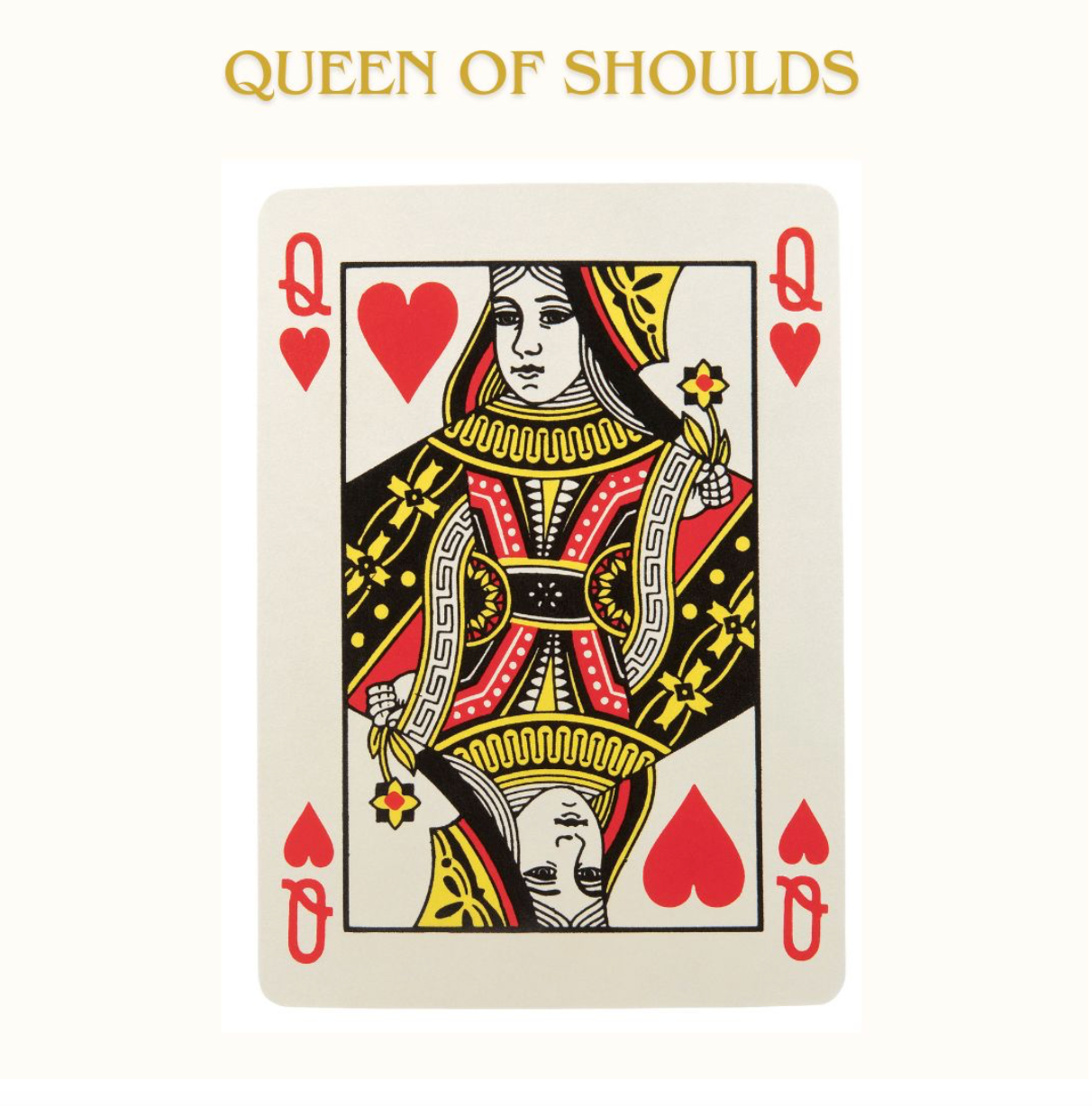Last week I introduced this idea of the thieves of joy in honor of the season of joy that honestly feels sometimes like the season of busyness and obligation, which leads to this week’s joy stealer: "shoulds."
I should call so-and-so more.
I should work on the ___ [project].
I should communicate better.
I should watch TV less.
I should be more patient.
I should learn another language.
I should exercise more, eat less, meditate more, go to bed earlier, etc. [insert your self-care strategy]
Etc., etc., etc.
Anyhoo. You get the idea. This is what it looks like to “should” on yourself. Throughout any given day, we may say things like the above to ourselves over and over.
Every “should” (or “should not”) is a judgment against yourself. Every. Single. One.
We may not be aware of it. For many of my clients, they are surprised when I point out how often they have used the word “should.” My coach has done the same for me.
Finding the energy, every day, to navigate this torrent of judgment is exhausting. It’s a miracle we get anything done. Really, I mean that.
I imagine my “should” voice as an imperious woman with a tall beehive hairdo in a 1950’s dress and high heels, because, god forbid, she should ever feel comfortable. Her face is pinched in anxiety and she is holding a pencil in one hand and an endless scroll of paper with an interminable list of “shoulds” in the other. The list includes everything from personality traits to household chores to life’s dreams to biggest regrets. Everytime she checks off a box on the list, another one appears on the scroll, and like a cash register gone wild, it keeps printing new items.
Let me tell you, she is EXHAUSTED.
But she keeps believing that if she just gets one more thing done, then she can rest and take a break. She believes that obeying the list will eventually lead to … happiness? Fulfillment? A sense of accomplishment? Or just a brief reprieve.
What my Queen of "Shoulds" doesn’t realize is that without rest and breaks, she never gets a chance to evaluate her list and decide whether the items on it are worthy of her time, energy and brain power; or whether they are even important to her. It doesn’t occur to her to ask whether these items give her joy.
This is her conundrum: Without time and space to consider a different perspective, she operates on autopilot, checking box after box while the list continues to grow.
So.
Does this sound familiar to you?
You may be tempted to combat the “should” voice by saying something like, “Whoa, I really should stop saying ‘should’ so much,” which, of course, would plop you back in the field of judgment. It’s important for me to understand that the Queen of Shoulds is doing the best she can with what she knows how to do. If she knew a better/different way, she’d happily take a day off. She wants the best for me. But the system she operates in makes her believe that running me into the ground is what’s necessary to avoid catastrophe.
It’s also direct line to burnout and other stress-related health issues. The body doesn’t lie, but the voice in our head sure does.
Let me ask you: Who benefits from your list of “shoulds”? Your boss? The company you work for? The gym you go to? The beauty industry? Your kids? Your spouse?
Is this who you want to benefit from your best thinking, time, energy, presence and, most importantly, your love?
Try This: "Should" Exercise
If you would like to stop “shoulding on yourself,” here is a five-minute exercise I often walk my clients through, especially when the voice is relentless and they are exhausted. I promise, it's short, even though it might look long.
-
Take a second to think about what you want for yourself in all the different aspects of your life: career, family, finances, spouse/partner, friendships, fun, spirituality, personal growth and health.
-
Set the timer on your phone for 2 minutes.
-
Write down all the “shoulds” (or should nots) you say to yourself. They can be long-term, “I should save more for retirement,” or immediate, small, “I should pull the laundry out of the dryer.” It doesn’t matter what order or which category, just write as many as you can in two minutes.
-
Read your list out loud.
-
Note how how you feel. What do you feel in your body? What is the emotion?
-
Now, cross out all the shoulds and write the word “could” instead.
-
Read you list out loud again, replacing the “shoulds” with “could.”
-
Note how how you feel. What do you feel in your body? What is the emotion?
-
Were they different? Why or why not?

